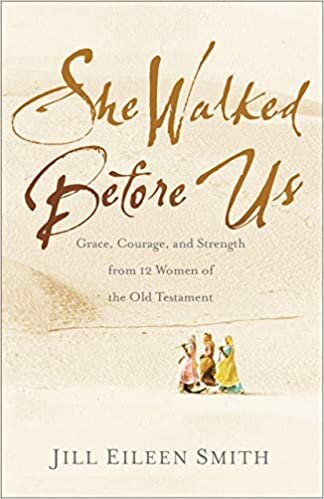

There are just seven weeks left until She Walked Before Us releases! I’ve been so swamped with other things that I forgot to post blogs about each woman in the book as I did with When Life Doesn’t Match Your Dreams. So this time I will double up and try to write two posts each week.
It is interesting that Miriam begins this new nonfiction book in chapter one because I am about to be editing the galleys for the novel Miriam’s Song in August. Her fictional story will release next March 2021.
But in the nonfiction version, readers of my first nonfiction will see the book is a bit different than When Life. That’s because in my first book, I had a style that fit better using personal stories and other memoir techniques in the commentary parts. Both books still have fictional scenes, but She Walked Before Us gives us more of a study to understand who these women were according to Scripture.

Miriam is not an easy woman to understand. We all know her name and every child who ever sat in Sunday school has heard the story of how she watched over her brother Moses as he floated in a little “ark” among the bulrushes of the Nile River in Egypt. We know she protected him and boldly asked the princess who rescued Moses if she needed someone to nurse him.
Beyond that, we know she was a prophetess and sang a praise song and was corrected by God for complaining against her brother later in life. She was also considered a leader in Israel—not often said of women in her day.
When it came time to write her story for both books, a lot of things had to be figured out or imagined. Did she marry? Have children? What was her life like as a slave?
And most significant to me—how did it feel when God corrected her?

Throughout Israel’s history, they were known to grumble and complain about various things. Three days out of Egypt and they complained because they couldn’t find water. God had just defeated their enemies and led them through a big sea on dry land to safety. Had they forgotten so quickly?
But Miriam…we never hear of her as one of those who complained until late in life when she disagreed with Moses. And God didn’t agree with her complaints so he rebuked her and gave her leprosy for a week.
I’m fairly certain that would have humbled her and gotten her attention. It would me.
The truth is, it’s easy for us to complain, isn’t it? We’re living in unprecedented times that are causing a lot of people anxiety and anger and we don’t know how to act, who to trust, what to do.
We complain far too easily, just like Israel did in ancient times. Someone disagrees with us? We get angry. Someone holds a different political point of view? That’s not tolerable. Someone holds to a different faith than we do? We ostracize them. And if we dare speak up in today’s culture with a view of anything that isn’t the accepted norm by whoever decides these things are acceptable, we get canceled. Shut out. Rejected.

If Miriam’s life can teach us anything, I hope we can see that God knows what we are thinking and saying. He isn’t blind to our hurts, but he also sees what is going on inside our hearts. He would correct us as He did Miriam, if we are in a relationship with Him. He only corrects because He loves and He loved Miriam enough to show her that her complaints against Moses were really complaints against what God had allowed.
We may not like our circumstances, as Miriam didn’t at times in her life, but being grateful for what we do have would go a long way to improving our life and our culture than our complaints ever will.

No one made Miriam critic, judge, and jury for her brother’s choices. That job belonged to God alone. It still does. Whatever happens in this life, in our world, in our relationships, I hope we can remember that to disagree can be a good thing. It wasn’t wrong for Miriam to disagree with Moses. But to complain and in her pride judge what God had not called wrong? That’s where she got into trouble.
But I’ll save the rest for the book.
Next up – Rahab.
~Selah
#shewalkedbeforeus #miriamssong #complaining #godhears #godsees